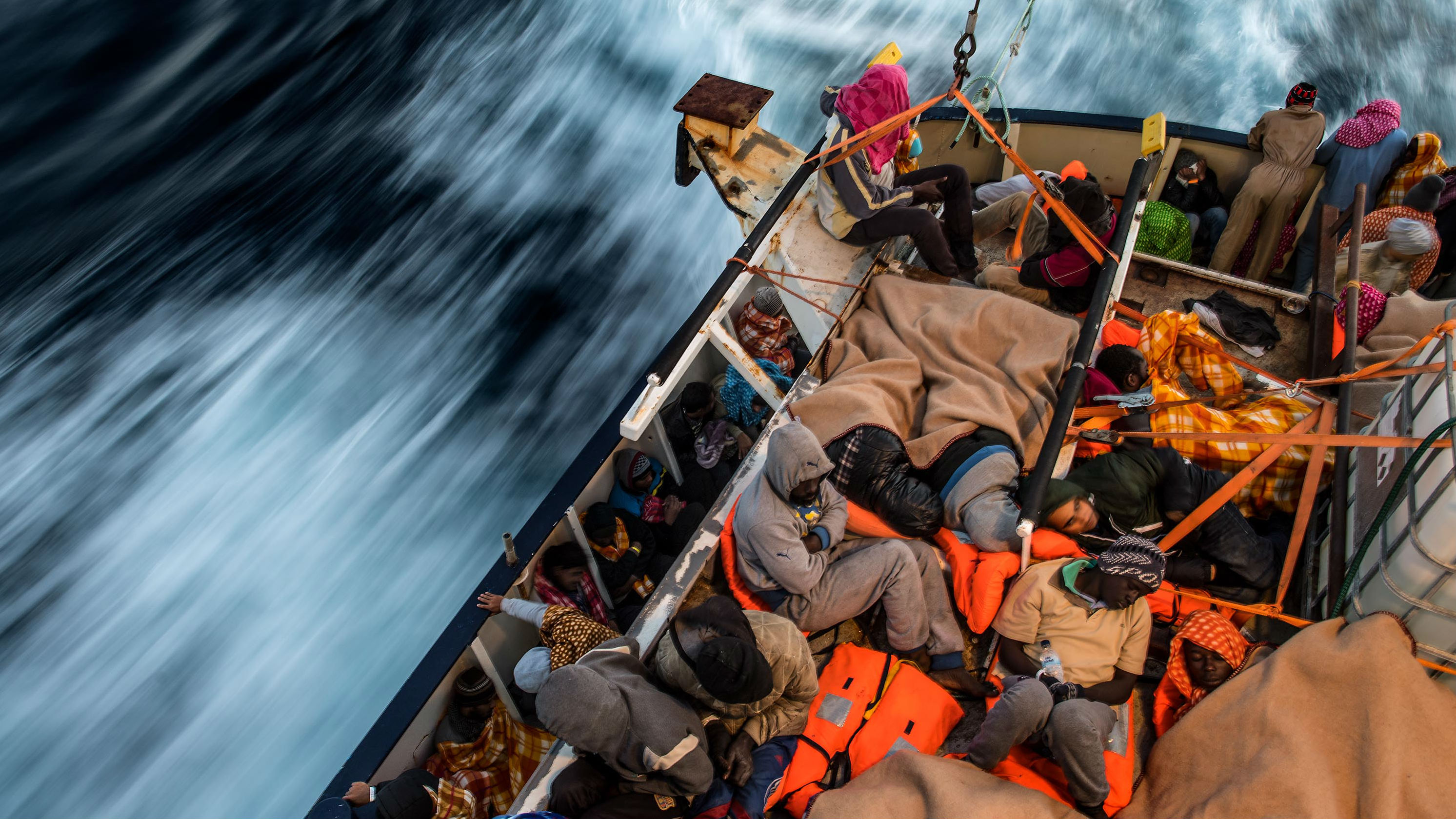More than 200 migrants feared drowned in Mediterranean Sea
Two overturned boats found off coast of Libya as number of deaths jumps 27 per cent in 2016

More than 200 migrants are feared to have drowned off the coast of Libya after a Spanish rescue team discovered two capsized dinghies.
Proactiva Open Arms pulled the bodies of five young men floating near the boat from the water.
Writing on its Facebook page, the group said: "We brought on board five corpses recovered from the sea, but no lives. It is a harsh reality check of the suffering here that is invisible in Europe."
The Week
Escape your echo chamber. Get the facts behind the news, plus analysis from multiple perspectives.

Sign up for The Week's Free Newsletters
From our morning news briefing to a weekly Good News Newsletter, get the best of The Week delivered directly to your inbox.
From our morning news briefing to a weekly Good News Newsletter, get the best of The Week delivered directly to your inbox.
It estimated as many as 240 migrants may have died. However, the Italian coastguard told the BBC it had no way of verifying the number, although it did confirm the five deaths.
Capsized boats are "typical of spring" as the migration "season" resumes, the International Organisation for Migration (IOM) warned last week, but the numbers seem to be increasing.
More than 20,000 migrants have arrived in Italy via the Mediterranean Sea so far this year, with around 559 believed to have gone missing or died en route.
In the first three months of 2016, there were slightly less than 19,000 arrivals and about 350 deaths.
A free daily email with the biggest news stories of the day – and the best features from TheWeek.com
A spokesman for the IOM said: "We have yet to complete March and we are already racing at a pace of arrivals that has exceeded anything we've seen before in the Mediterranean.
"This is typical of spring, getting very busy, but it's not typical to have the numbers be so high this early and the corresponding deaths that go with it."
The IOM last week reported a total of 7,763 deaths of migrants fleeing poverty or violence around the world in 2016 - a 27 per cent increase on the previous year.
Frank Laczko, head of the group's migration research division, said: "I think we are still quite shocked by the figures.
"There has been so much attention in the media and in policy circles given to the rising number of deaths. But despite all of that, we still see the number of deaths, particularly in the Mediterranean, rising quite significantly last year."
-
 Political cartoons for February 1
Political cartoons for February 1Cartoons Sunday's political cartoons include Tom Homan's offer, the Fox News filter, and more
-
 Will SpaceX, OpenAI and Anthropic make 2026 the year of mega tech listings?
Will SpaceX, OpenAI and Anthropic make 2026 the year of mega tech listings?In Depth SpaceX float may come as soon as this year, and would be the largest IPO in history
-
 Reforming the House of Lords
Reforming the House of LordsThe Explainer Keir Starmer’s government regards reform of the House of Lords as ‘long overdue and essential’
-
 Israel retrieves final hostage’s body from Gaza
Israel retrieves final hostage’s body from GazaSpeed Read The 24-year-old police officer was killed during the initial Hamas attack
-
 China’s Xi targets top general in growing purge
China’s Xi targets top general in growing purgeSpeed Read Zhang Youxia is being investigated over ‘grave violations’ of the law
-
 Panama and Canada are negotiating over a crucial copper mine
Panama and Canada are negotiating over a crucial copper mineIn the Spotlight Panama is set to make a final decision on the mine this summer
-
 Why Greenland’s natural resources are nearly impossible to mine
Why Greenland’s natural resources are nearly impossible to mineThe Explainer The country’s natural landscape makes the task extremely difficult
-
 Iran cuts internet as protests escalate
Iran cuts internet as protests escalateSpeed Reada Government buildings across the country have been set on fire
-
 US nabs ‘shadow’ tanker claimed by Russia
US nabs ‘shadow’ tanker claimed by RussiaSpeed Read The ship was one of two vessels seized by the US military
-
 How Bulgaria’s government fell amid mass protests
How Bulgaria’s government fell amid mass protestsThe Explainer The country’s prime minister resigned as part of the fallout
-
 Femicide: Italy’s newest crime
Femicide: Italy’s newest crimeThe Explainer Landmark law to criminalise murder of a woman as an ‘act of hatred’ or ‘subjugation’ but critics say Italy is still deeply patriarchal